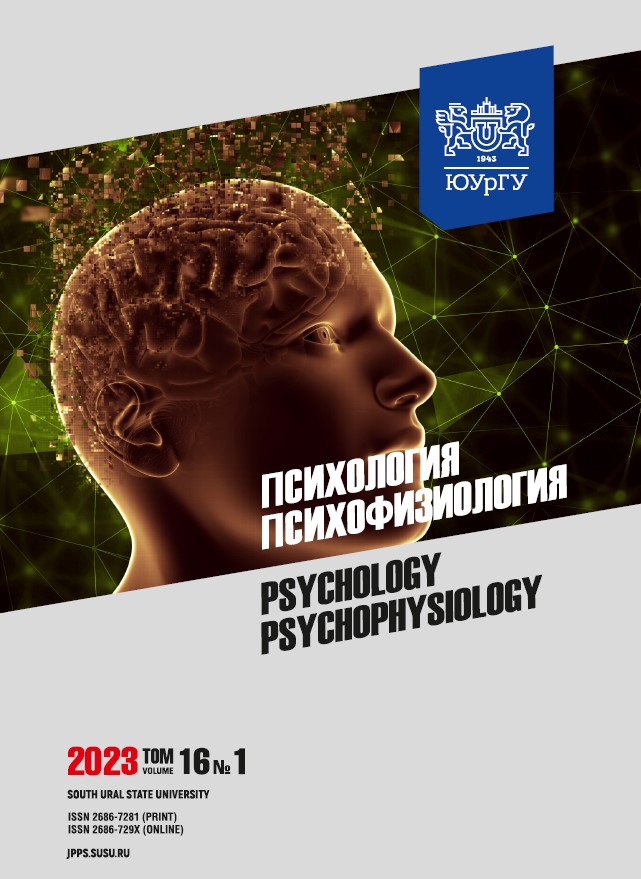Reflexivity and existential fulfillment of women with benign and malignant breast tumors
Abstract
Introduction. Breast neoplasms, both benign (fibrocystic mastopathy) and malignant (breast cancer), are the leading oncological pathology among the female population not only in the Russian Federation but also in the world since their prevalence is increasing everywhere. The psychological characteristics of cancer patients often play a decisive role in managing their health as well as assessing and maintaining their quality of life. The psychological potential of the patient associated with reflexivity and existential fulfillment simultaneously affects health assessment, treatment outcomes, and the course of the disease itself. Aim. The paper aims to estimate reflexivity and existential fulfillment in women with malignant and benign breast tumors. Materials and methods. The Existence Scale test (A. Laengle, Ch. Orgler) and A. Karpov's Questionnaire were used as diagnostic tools. The nonparametric Mann–Whitney U-test was used to estimate the differences between the existential scores of female patients with benign tumors (Group 1) and those of patients with malignant tumors (Group 2). The validity of the results was ensured by the application of the SPSS Statistics software suite. Results. The patients in Group 1 showed moderate scores for self-distance, freedom, and responsibility and low scores for self-transcendence. The females in Group 2 demonstrated low scores for self-distance and moderate scores for freedom, self-transcendence, and responsibility. The comparison of the results obtained by means of the Mann–Whitney U-test revealed a significant intergroup difference in terms of reflexivity: the patients in Group 1 featured more distinct reflexivity than those in Group 2. The study of significant correlations between reflexivity and existential parameters showed an inverse correlation of reflexivity with freedom in Group 1. At the same time, no significant correlations between reflexivity and existential parameters were found in Group 2. Conclusion. The use of psychodiagnostic tools in women with benign and malignant breast neoplasms makes it possible to assess their awareness and analysis of the disease situation, as well as to abstract from negative experiences, motives, and desires.
Downloads
References
2. Łuczyk M., Pietraszek A., Łuczyk R. et al. Akceptacja choroby w grupie kobiet leczonych chirurgicznie z powodu nowotworu piersi (Illness acceptance among women who have undergone surgical treatment for a breast neoplasm). Journal of Education, Health and Sport. 2015;5(9):569–575. (in Polish).
3. Kaprin A.D., Rozhkov N.I. Dobrokachestvennye zabolevaniya molochnoi zhelezy [Benign diseases of the breast]. Moscow: GEOTAR-Media. 2018:272 (in Russ.).
4. Kerchelaeva S.B., Smetnik A.A., Bespalov V.G. Mastopathy and breast cancer prevention as interdisciplinary problem. Russkii meditsinskii zhurnal = Russian Medical Journal. 2016;15:1018–1025. (in Russ.).
5. Axel E.M., Davydov M.I. Incidence of malignant neoplasms of the population of Russia and CIS countries in 2008. Vestnik Rossiiskogo onkologicheskogo nauchnogo tsentra im. N.I. Bloxina RAMN = Bulletin of the N. N. Blokhin Russian Research Center of the Russian Academy of Medical Sciences. 2011;22(3;S1(85)):54–92 (in Russ.).
6. Kaprin A.D., Starinsky V.V., Petrova G.V. Zlokachestvennye novoobrazovaniya v Rossii v 2015 g. (zabolevaemost i smertnost) [Malignant neoplasms in Russia in 2015 (morbidity and mortality)]. Moscow: MNIOI im. P.A. Herzen branch of the Federal State Budgetary Institution “NMIRC” of the Ministry of Health of Russia, 2017:250. (in Russ.).
7. Evstifeeva E.A., Filippchenkova S.I., Murashova L.A., Holodin S.P. Sociohumanitarian technologies for diagnosing the quality of life associated with health. Medicinskii almanah = Medical Almanac. 2017;5(50):10–12. (in Russ.).
8. World Health Organization. URL: https://www.who.int/ru/news-room/fact-sheets/detail/breast-cancer (accessed 03.11.2022).
9. Sukhareva E.A., Egorova A.G., A.N. Somov. Characteristics of onco-epidemiological risk factors for diseases of the mammary glands. Medicinskii almanah = Medical Almanac. 2017;6(51):94–98 (in Russ.).
10. Mermer G., Nazli A., Ceber E., Mermer G. Social perceptions of breast cancer by women still undergoing or having completed therapy: a qualitative study. Asian Pacific Journal of Cancer Prevention. 2016;17(2):503–510.
11. Senina V.S. Psychological status of a cancer patient. Molodoi uchenyi = Young scientist. 2017;48(182):164–168. URL: https://moluch.ru/archive/182/46815/ (accessed 20.09.2022).
12. Langle A. Fundamental motivations of existence as an effective structure of existential-analytical therapy. Ekzistentsialnyi analiz. Byullyuten = Existential Analysis. Bulletin. 2009;1:9–31.
(in Russ.).
13. Karpov A.V. Reflexivity as a mental property and methods of its diagnostics. Psikhologicheskii zhurnal = Psychological journal. 2003;24(5):45–57. (in Russ.).
14. Krivtsova S.V. Existence Scale A. Lenglet and K. Orgler. Ekzistentsialnyi analiz. Byullyuten = Existential Analysis. Bulletin. 2009;1:141–170. (in Russ.).
References on translit
-Copyright (c) 2023 Psychology. Psychophysiology

This work is licensed under a Creative Commons Attribution-NonCommercial-NoDerivatives 4.0 International License.



